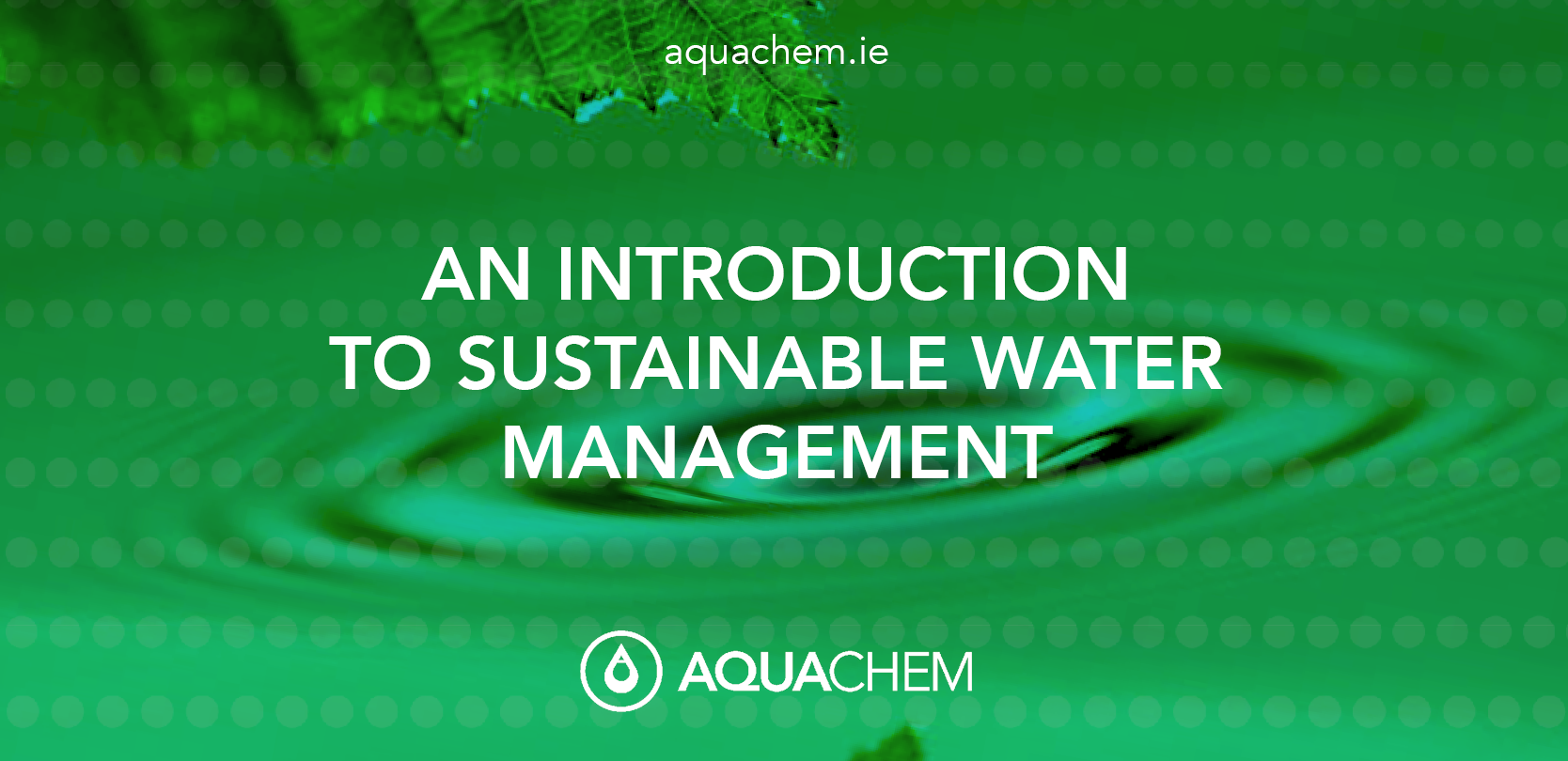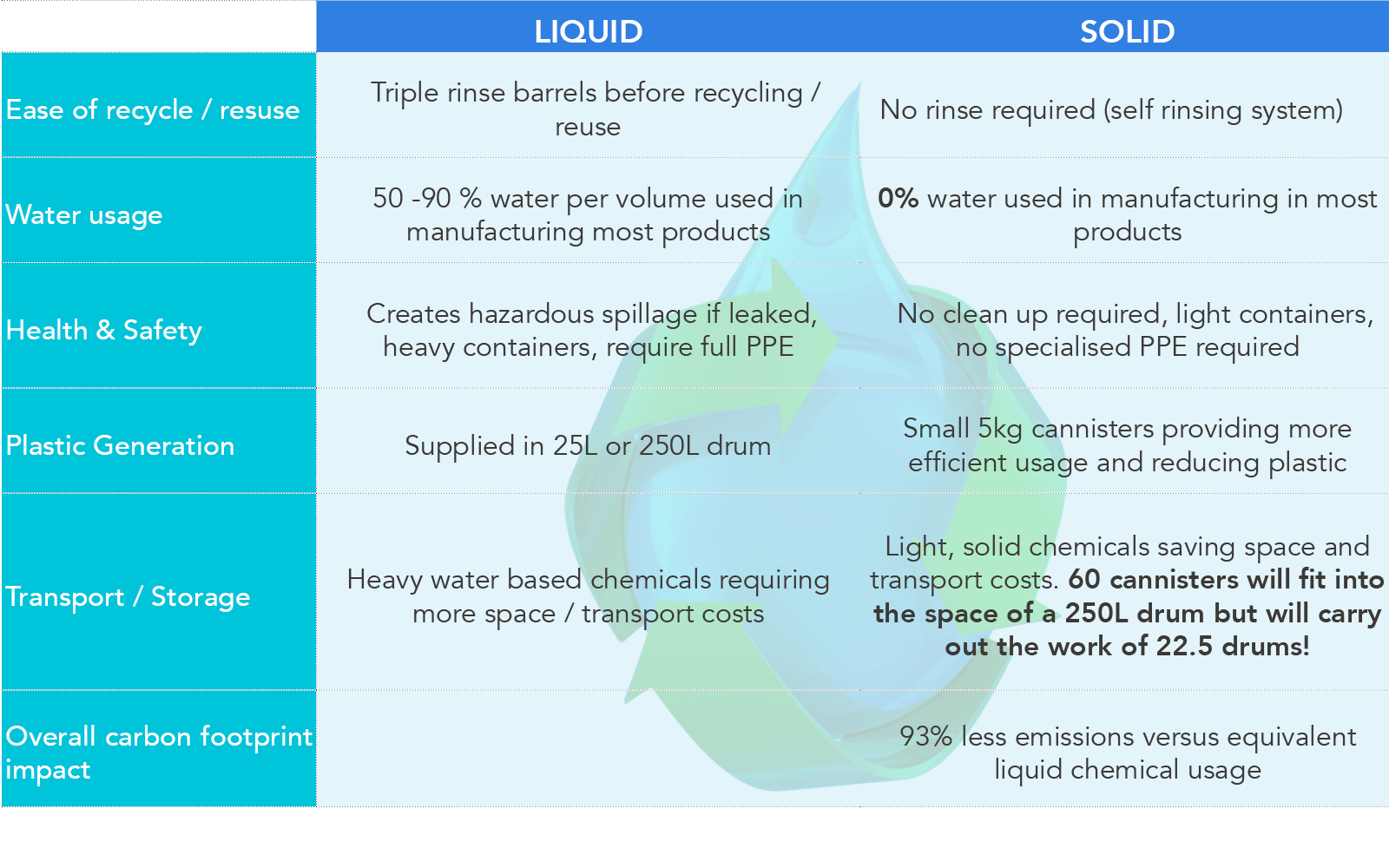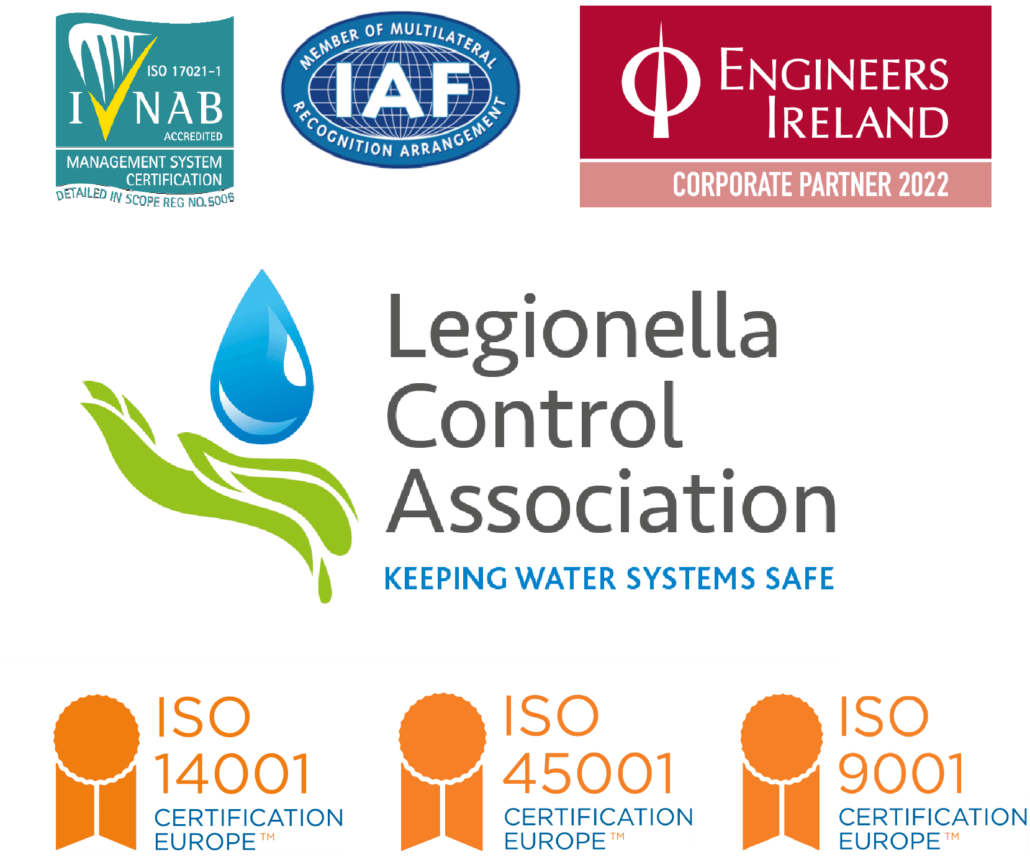An Introduction to Sustainable Water Management
Sustainability and water conservation have long been hot topics in the water treatment field, with sustainable water management proving critical in the coming years.
Water usage in organisations, has often been considered a secondary aspect on many business’ agendas, however as the emphasis on sustainability is being highlighted more than ever, businesses need to prioritise their water management in a mission to aid in reducing their carbon footprint.
In short we must move away from the notion that water is “free” even when we abstract it ourselves from our own wells or other natural sources such as rivers or lakes.
While we are lucky that most of us in this country are working in areas that are relatively free from water stress, this may not always be the case going forward with hotter, drier summers predicted. We also have to consider that water quality is just as important as quantity, there are many businesses that require the highest standards of water.
As water quality declines the cost of improving it increases. Understanding the relationship between an organisations water usage, cost, and the environment is called water stewardship.
“Ireland’s climate means that there is usually enough water to meet the needs of its people and the surrounding environment. However, the EPA’s monitoring and assessment of water quality In Ireland indicates it is getting worse. Just over half of Ireland’s surface waters are in good condition.”
Source: EPA Ireland*
In practical terms a business’ water usage is linked to energy and chemical usage and therefore to it’s carbon footprint; as we have seen water is not “free.” It requires energy to pump and heat and chemical to soften and disinfect amongst countless examples. Improvements in water usage will lead to improvements in an organisations carbon footprint and wider environmental impact.
In March 2021, the Irish Government announced they approved the new Climate Bill, putting Ireland on the path to net-zero emissions by 2050.**
Minister for the Environment, Climate, and Communications, Eamon Ryan TD said:
“We finally have urgent ambition set in legislation that puts Ireland on the road to net-zero emissions by 2050. We also have a legally-binding framework in place which includes accountability to deliver our target of a 51% reduction over the next decade. It’s time to set out a new Climate Action Plan, to begin the journey to Net Zero, by halving our emissions over the next ten years. In doing so, we can build a cleaner, more sustainable and secure future for us all.”
Businesses should prepare for eventual legislation coming into place regarding their water efficiency, to be ahead of the curve businesses must act now. Businesses really need to look at their water systems and see what can be done to improve them, make them more efficient and reduce their waste.
As with other utilities, it is crucial to build up an understanding of how water is used within your processes before management and technological changes are to be implemented.
The main long terms goals here are to reduce consumption and waste by using water smartly, but first an organisation needs to know where it is starting from. Sometimes identifying the first steps can be the hardest.
To begin with “smart metering” is an extremely effective way for your business to get started on its journey towards sustainability.
Smart water meters are installed at key points in your system and will provide the information you need to determine your baseline usage, identify wastage and leaks, and provide inspiration for water reduction plans.
The data gathered from your metering system will provide you with the necessary feedback on your progress. This may be required to demonstrate savings both in terms of water itself but also the associated costs of using it. The information provided by water meters are the foundation of any water related project, without it we are flying blind.
Usually meters will be installed at key points, which may include:
- Intake – such as the well, softener, council line etc
- Significant water users – these will be site specific such as boilers, cooling towers, machines and wash processes etc
- Water recycle / reuse lines
- Discharge points such as a waste water plant or final discharge point into a sewer line
Information from this system will allow a business to build up a picture of the water flow through it’s process and make it easier to identify and quantify reductions and opportunities as part of a procedural plan.
Smart meters can also provide direct and immediate savings in alerting a business to unusual usage which could be the result of a faulty process or leak. This also helps eliminate time lost to a business looking for sources of “water cannibalism” which may be starving other processes within the site when supply is limited.
Switching from liquid chemicals to solid chemicals is another simple measure that can be done to reduce your carbon footprint for reasons shown below:
By implementing a combined suite of measures, not only does the likelihood of successful sustainable water management improve but a business will also save money, energy, and chemicals contributing to it “doing it’s part”.
With fast growing society and economy, the conflict between growing water demand and limited water resources becomes more and more serious.
The sustainability of water resources, as well as energy, is one of the two factors challenging the world in 21st century and so we must act now.








